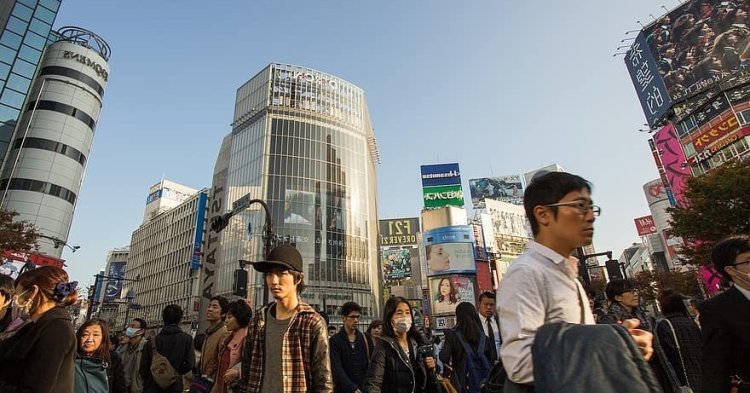Covid-19 was described as a “living time-bomb of unemployment” during the virtual event “Shaping the Future of Work”. Figures published in the OECD’s Employment Outlook report 2020 published by the OECD show that those most affected by the risk unemployment due to the pandemic are already the most vulnerable within societies: women, youth, part-time workers, and low-paid workers, amongst others. Speaker Jacques van den Broek, CEO of Randstad, said that while the report shows that 50% of workers are expected to lose their job, something can and has to be done to avoid such high figures.
“There should be a safety protocol for workers,” said van den Broek. “Workers should be working a minimum safe distance from each other. Keeping in mind the risk of a second wave, there should be partition walls for people working together. It is a matter of choice and money but not caring for workers’ health shouldn’t be accepted.”
The director of employment, labour and social affairs for the OECD, Stefano Scarpetta, expressed great concern over the unemployment rate and drastically increasing inequality that we are witnessing. Scarpetta demonstrated that the start of this year had seen the lowest unemployment rates in OECD countries since the 2008, but in just three months the rate exceeded that of the height of the recession: and that the recession was a crisis from which it took around 10 years to recover. He added that jobs are in a crisis and we should start preparing for the second-wave which is expected to hit even more severely than the first. In fact, while the first-wave of COVID-19 saw 31 million jobs lost, the second-wave is expected to cause 53 million jobs.
“There should be an adaptation of policies for post-confinement to ensure a resilient recovery,” said Scarpetta.
Agreeing with Scarpetta, the Deputy Secretary General for OECD, Ulrik Vestergaard Knudsen, said that the EU funds should, more than ever, be carefully distributed so as to rebuild a better labour market and protect workers in this new economy. He suggested that countries should work together to deal with the current challenges.
“We should be focused on avoiding mass unemployment,” said Vestergaard Knudsen. The Secretary General for SMEunited, Veronique Willems, added to Vestergaard Knudsen’s comments as she feels that the EU institutions should work faster to implement policies and distribute funds to avoid any entrepreneurs struggling for a long period of time and losing skilled workers.
“During the months of the pandemic, many companies had to close down their activities, while about 90% of SMEs across Europe have indicated that they lost revenues and had an immediate negative impact on their liquidity,” said Willems. Supporting Willems’ argument was General Secretary of Trade Unions Congress in the United Kingdom, Francis O’Grady, who said that good skilled jobs should be protected as they are hard to recreate. She added that the public has gained additional awareness of the importance of some types of jobs that used to be taken for granted.
“We need a new deal for working people and we need it now,” said O’Grady.
The Vice President of Education within the IBM Corporation, Grace Suh, said that focus should be shifted to the digital world as technology is accelerating and could help unemployed people during this time.
“We should focus on a long-term digital strategy and help people get jobs where they can work remotely, and not just until this pandemic is over,” said Suh.
Focusing on a vulnerable group, MEP Lina Gálvez Muñoz said that unemployment for women in the last few months increased threefold while a further increase was seen in the unpaid work carried out by this gender.
“Public policies aren’t addressing the long-term issue properly,” said Gálvez Muñoz. “Pushing women into the workforce is not enough.”
Similarly to women, young people have been experiencing great challenges as figures show that one in every six young adults has lost their job. Fréderic Piccavet, a Board Member within the European Youth Forum, said that in view of such numbers, the ideal step forward is to build a quality labour system instead of rebuilding what societies used to have.
“Without attention to this, the unemployment scar could be deadly,” said Piccavet.
Economist Manuel Escudero said that jobs should be created for young people so that they do not become a lost generation. He added that structural policies are to be constructed while rescuing workers to incorporate them into the workforce.
“No one should be left behind,” said Escudero.
Taking a look at the unemployment rate situation
An informative video by the OECD can be seen here. According to the Employment Outlook report 2020, unemployment is projected to reach nearly 10% in OECD countries by the end of 2020, up from 5.3% at year-end 2019, and to go as high as 12% should a second wave hit. Following this, a recovery in the number of jobs is not expected until after 2021.
During this pandemic, some countries have been hit worse than others. In some countries, employers are using job retention programmes to cut hours while allowing workers to keep their pay and jobs. In others, there have been unprecedented leaps in unemployment, but many workers will return to their jobs as economies re-open and activity picks up.
Who is the most vulnerable to this job crisis?
This graph by the OECD shows how the COVID-19 crisis is having a greater impact on some workers than others.
Young people and women are among those at greatest risk of joblessness and poverty. They generally have less secure, unskilled jobs and are highly represented among workers in industries most affected by the crisis, such as tourism and restaurants.

Follow the comments: |
|
